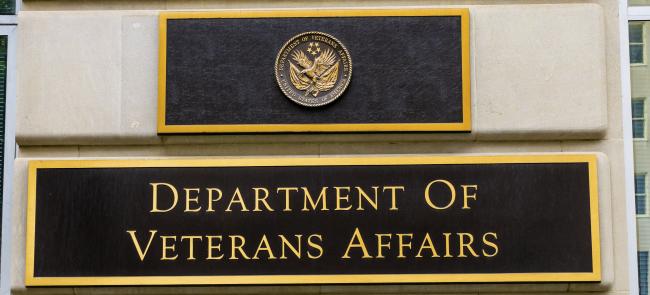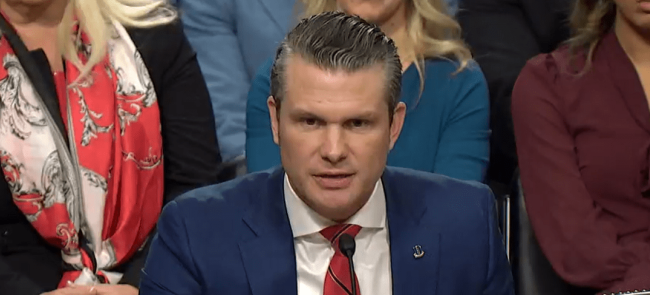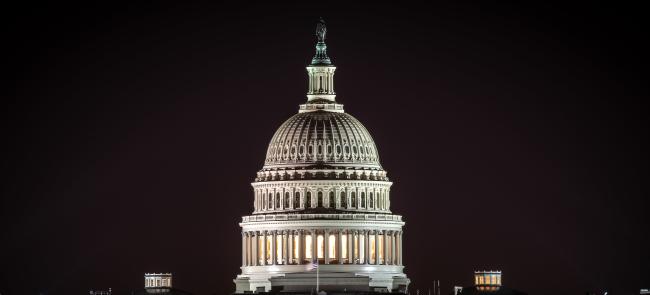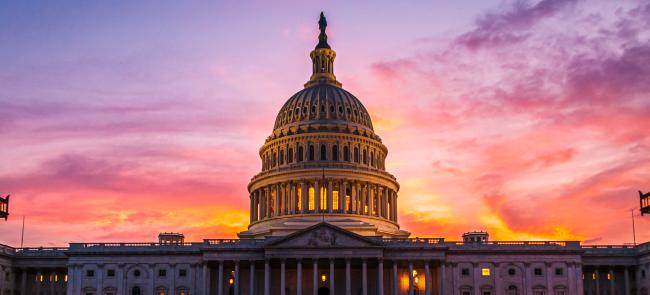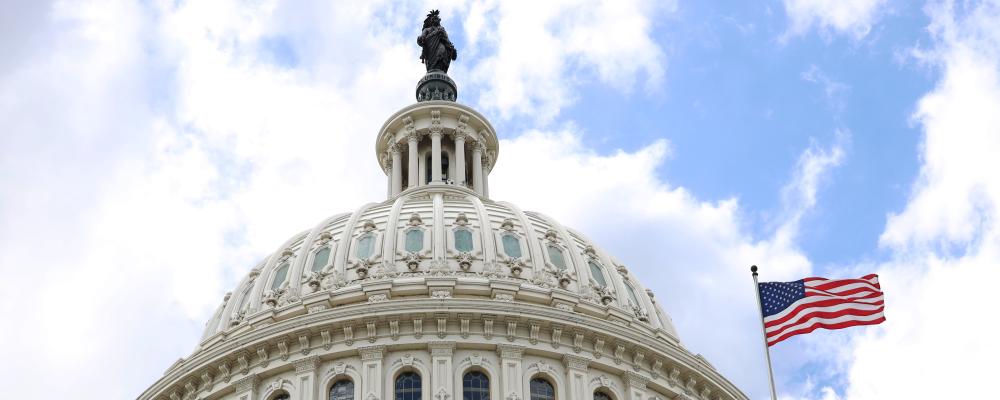
Congress returned to pressing budget deadlines this week that lawmakers have been punting for months.
The first tier of the federal government's current two-tier stopgap budget expires Friday. The measure is the third stopgap budget from Congress since fiscal 2024 began Oct. 1.
Four of the federal government's 12 spending bills, including legislation for military construction and veterans, are impacted if the current stopgap budget expires on March 1.
Should lawmakers fail to agree on fiscal 2024 appropriations for all four bills — or create another short-term budget, which is known on Capitol Hill as a continuing resolution — the federal government would partially shut down.
For example, the Pentagon's funding runs out on March 8.
The House and Senate remain far apart on spending priorities. And while most observers do not expect a government shutdown, time is running out.
President Joe Biden plans on meeting with congressional leaders at the While House today, where he will try avoiding a shutdown and securing supplemental funding for Ukraine, Israel and Taiwan, three of the nation's allies overseas.
In recent days, there has been little more than finger-pointing about the situation across both sides of the aisle in Congress.
Senate Majority Leader Chuck Schumer, D-N.Y., urged Republicans to "figure themselves out," while House Speaker Mike Johnson, R-La., blamed the stalemate on "new Democrat demands."
The House Freedom Caucus has also said it does not want Republicans to get jammed with a compromise omnibus federal spending package. The conservative group argues that Johnson should pivot to a yearlong CR if he cannot secure spending wins for the GOP.
"If we are not going to secure significant policy changes or even keep spending below the caps adopted by bipartisan majorities less than one year ago, why would we proceed when we could instead pass a yearlong funding resolution that would save Americans $100 billion in year one?" the lawmakers wrote in a Feb. 21 letter to Johnson.
The House Freedom Caucus was referring to a provision in the fiscal agreement made by former House Speaker Kevin McCarthy, R-Calif., and Biden in May. The agreement would cut federal spending 1% across the board on April 30 if Congress could not reach a governmentwide spending deal before then.
But the thought of a year-long CR alarms defense officials.
A year-long CR would keep defense spending at fiscal 2023 levels for the rest of fiscal 2024. It would also prevent the Pentagon from starting new programs and increasing procurement quantities for its existing efforts.
Air Force Secretary Frank Kendall offered a stark appraisal of how CRs have stymied his modernization efforts during a Center for a New American Security event in Washington, D.C., last November.
"If we have a yearlong CR, I’m looking at the possibility that my entire tenure in office will be spent waiting for money from the Congress, that we’ll have identified in the first few months what we need to do, asked the Congress for that money and then spent the entire rest of the term waiting for that money to be appropriated," he said.
— By John Goheen

